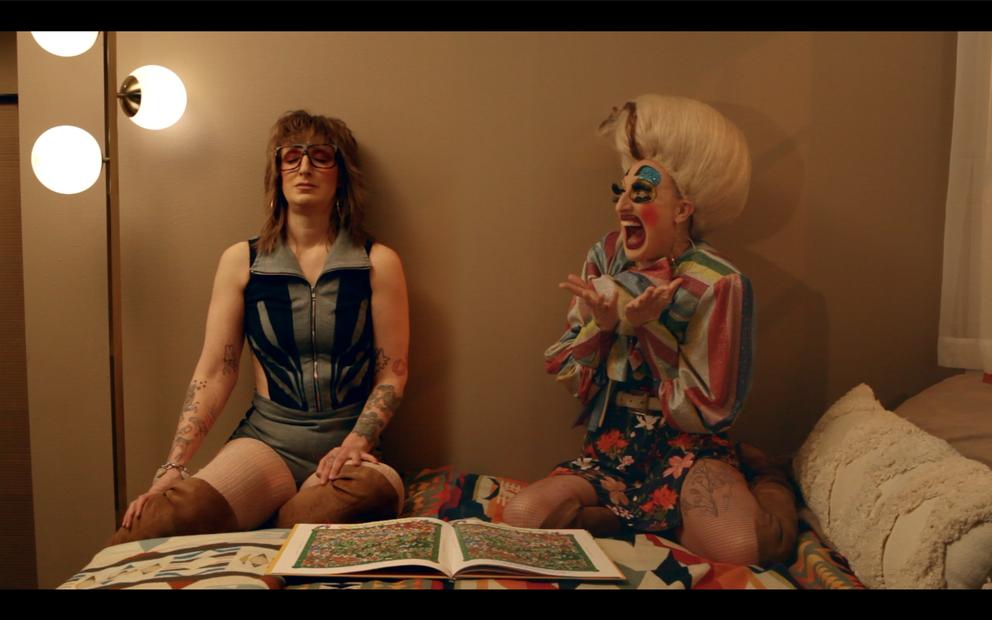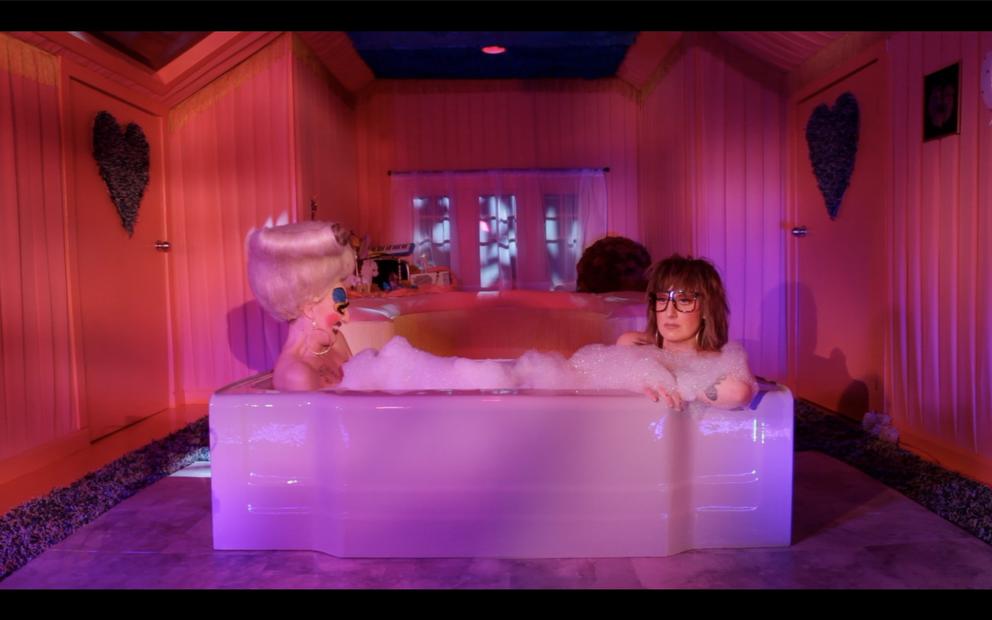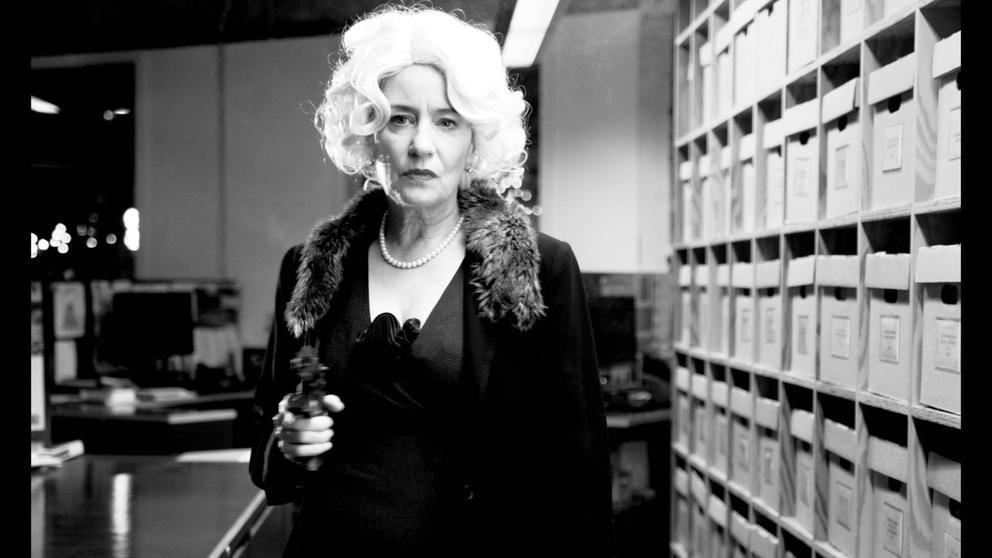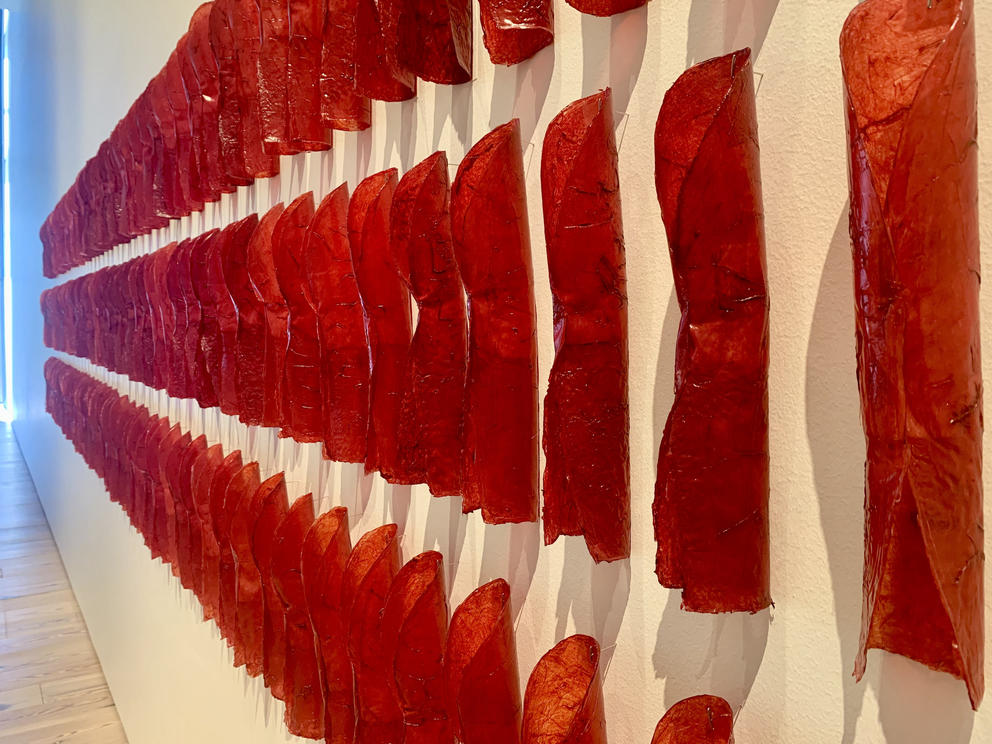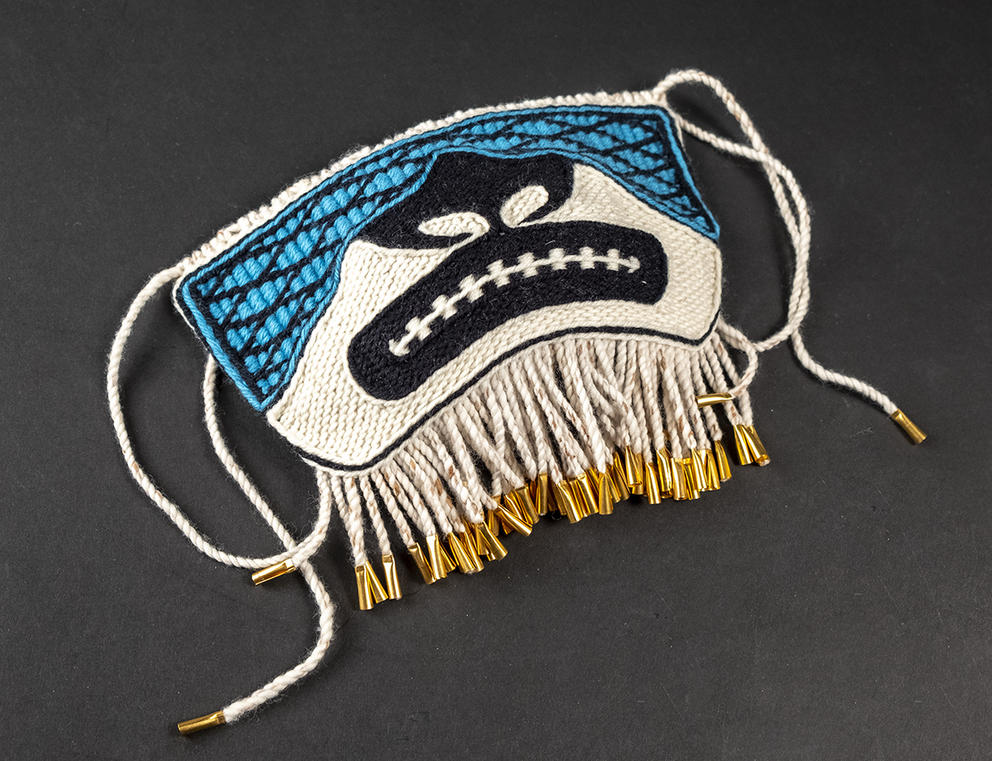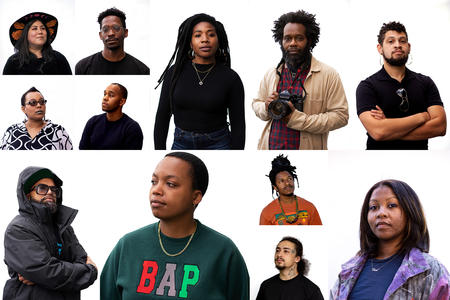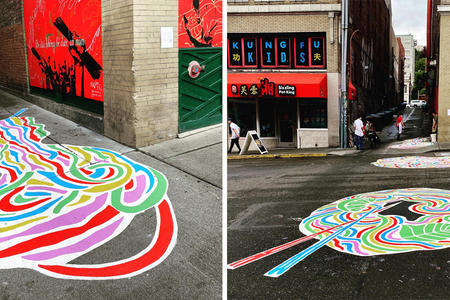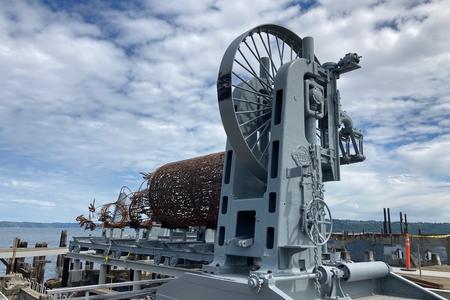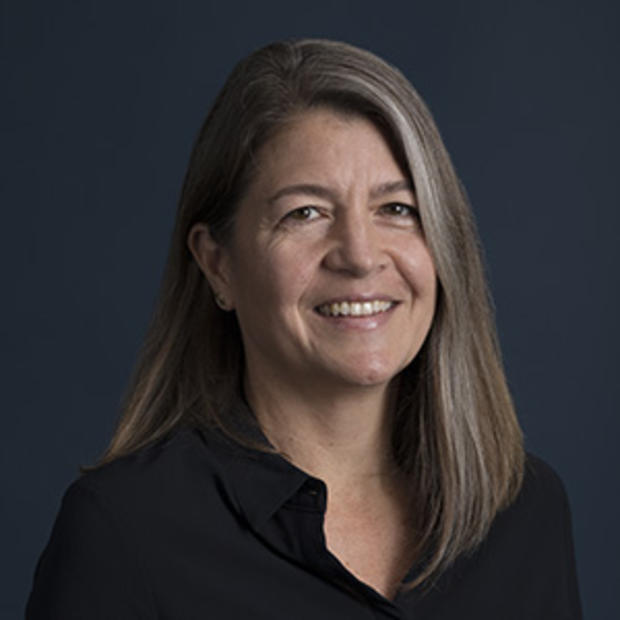Take Seattle’s Jody Kuehner, a queer performance artist and dancer whose stage persona is Cherdonna Shinatra, the much beloved queen of cringe. Cherdonna is a glittering, gangly, over-the-top concoction of drag and theater and clowning. Always game and eager to fit in, she is also too awkward to pull it off. Have you ever blurted out a “funny observation” at a party and received blank faces in return and wanted to pull the words back into your mouth? She is the physical embodiment of that, adorned with insane lipstick and tarantulaic fake eyelashes.
ArtSEA: Notes on Northwest Culture is Crosscut’s weekly arts & culture newsletter.
And that’s part of why she’s so appealing — as much as we wish that embarrassing part of ourselves would disappear, we still feel protective of its vulnerability. In her new film The Doll Pit (streaming through June 13 via Washington Ensemble Theatre), Kuehner shows us what it’s like to live with that part of yourself both inside your head and constantly exposed as a public persona.
The set is a tiny faux apartment (modeled after Kuehner’s own), where the two live together. The tight quarters reflect what it’s like to have Cherdonna as a roommate of your mind. She’s always there, smiling and gesticulating and enthusing, even when Kuehner just wants to take a bath or read or have a cup of tea. “Just stop,” she tells Cherdonna at one point, then immediately feels guilty.
“Parts of it are comical … but this show is a little darker; it’s a little sadder, it’s a little lonelier,” Kuehner recently told American Theatre magazine. “It’s just representative of the time and how I’m feeling.”
It’s a fascinating look at the psychology of performance — both artistically and in terms of the characters we all enact, the masks we wear among friends, co-workers and family.
For another comical take on how performance seeps into real life and vice versa, I recommend a new locally made TV series, The Uncertain Detective (on YouTube, new episodes released every Monday through June). Understated and charming, it’s written and directed by longtime Seattle filmmaker Gregg Lachow, who stars alongside his wife, beloved performer Megan Murphy. The duo have worked together regularly over the past three decades, and they frequently invite family members and friends into their artmaking. (Here, the cast includes their son, Charlie Lachow, and Seattle actors Eric Ray Anderson, Sarah Harlett, Joe Guppy and Annette Toutonghi.)
The premise is a mirrored story within a story, as Lachow plays a version of himself, a dad working on a web series called The Uncertain Detective. As with The Doll Pit, the family home sets a scene — here, it’s an arty space with colorful walls that’s also home to a young adult (Charlie) who is allegedly “taking a gap year,” but who spends more time practicing his fingerboarding (it’s a thing) than researching colleges.
These scenes are intercut with video from the show Lachow is creating, an avant-garde noir series in which he plays a hardboiled, hat-wearing detective more interested in pursuing time travel and mysteries of the universe than run-of-the-mill affairs and thievery. Murphy starts out as his assistant detective, but insists on an upgrade to femme fatale, citing several reasons she might want to kill her husband.
The comedy is subtle and self-deprecating. In a running gag, Lachow bumps into various friends and reveals, “I’m working on a web series,” to which they respond only, “I’ve seen it.” An awkward silence stretches on.
Two episodes in, I’m finding it funny and appealingly odd. I’ve long been a fan of Murphy’s dance vernacular, and we get glimpses of that here. But mostly it feels like a genuine portrayal of what it’s like to live and work as a family of artists, inhabiting and exhibiting different selves.
Last week, while I was up in Alaska visiting friends and family, I had a chance to visit the Anchorage Museum. I highly recommend checking it out if you’re in the vicinity — it’s a lovely space displaying an excellent collection of contemporary art, with an emphasis on Indigenous works.
I was hometown-proud to see pieces there by Seattle environmental artists John Grade and Chris Jordan, and thrilled to encounter artists new to me: striking takes on sockeye drying methods and the “idiot strings” adjoining mittens by artist Sonya Kelliher-Combs (Iñupiaq/Athabascan American); gorgeously minimalist, Native-meets-Nordic carvings by recently deceased artist Ron Senungetuk (Iñupiaq); and an eye-popping recycled quilt by Anchorage artist Amy Meissner, whose work often comments on the societal disregard for women’s handiwork.
Also exciting: an up-close chance to see a “Chilkat Protector” mask by Tlingit artist Lily Hope. She had exhibited a similar woven mask last year at the Washington State History Museum’s In the Spirit show of Indigenous art. But like most 2020 shows, that was virtual, so I was unable to see it in person. Seeing it at close range reveals the mask’s oceanic blue and tight wool stitching, rendering it an even more powerful pandemic-inspired artwork.
And now we have the chance to view a “Chilkat Protector” mask here in Seattle, in the new show at Stonington Gallery. The group exhibit, Tradition Keepers (June 3-26), showcases the work of contemporary women artists, including fresh takes on Yup’ik masks by Jennifer Angaiak Wood, woven cedar-bark bustiers and boots by Haida artist Lisa Telford, plus plentiful paintings and jewelry and carvings, as well as Hope’s artful contribution to COVID-19 history.
“ ‘Chilkat Protector’ serves as a record of this time,” she told the Washington State History Museum last year. “In the future, people will know we were here, we took care of each other, and we survived. We are still weaving.”
Get the latest in local arts and culture
This weekly newsletter brings arts news and cultural events straight to your inbox.

